

Go to the source code of this file.
Functions | |
| int | execute_ast (t_ast *node, t_ms_data *data) |
| execute Abstract Syntax Tree | |
| int | execute (t_ms_data *data) |
| execute distribution function | |
| char * | ft_find_path (char *cmd, t_env *envp) |
| function find the full path of the executed command | |
| void | ft_free_2d_arr (char **arr) |
| int | ft_perror (char *str) |
| void | close_fds (int in, int out) |
| close two file descriptors | |
| void | handle_io_fd (t_ms_data *data) |
| close temporary input/output file descriptors and reset them to -1 | |
| void | handle_std_io (int *std_io, int std_fileno) |
| int | handle_shell_variable (t_ast *node, t_ms_data *data) |
| int | handle_get_shell_variable (t_ms_data *data, const char *key) |
| void | shell_variable_update (t_ms_data *data, int status) |
Function Documentation
◆ close_fds()
| void close_fds | ( | int | in, |
| int | out | ||
| ) |
close two file descriptors
--
- Parameters
-
fds file descriptors
Definition at line 28 of file utils_0.c.
Referenced by child_process(), execute_child(), new_process(), and setup_pipe_processes().
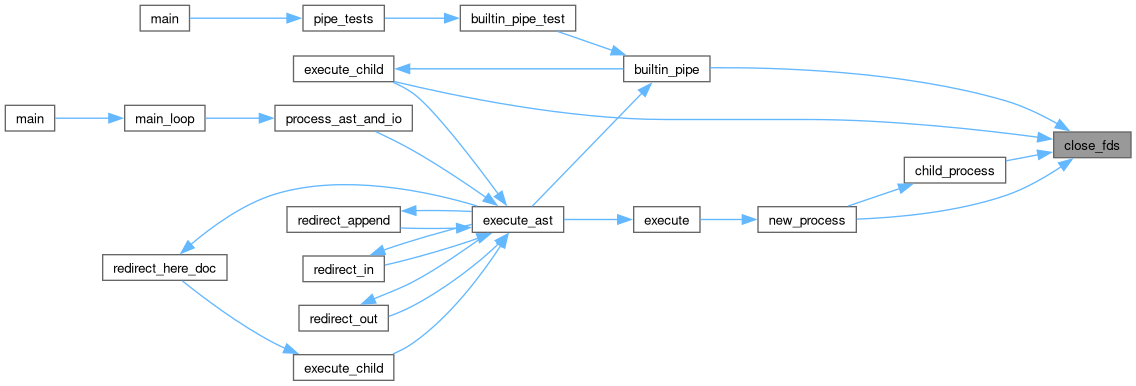
◆ execute()
| int execute | ( | t_ms_data * | data | ) |
execute distribution function
--
- Parameters
-
data minishell data struct
- Returns
- int return status:
- - 0: success
- - 1: error
Definition at line 40 of file execute_child.c.
References s_ms_data::args, builtin_cd(), builtin_echo(), builtin_env(), builtin_exit(), builtin_export(), builtin_pwd(), builtin_unset(), ft_strcmp(), and new_process().
Referenced by execute_ast().
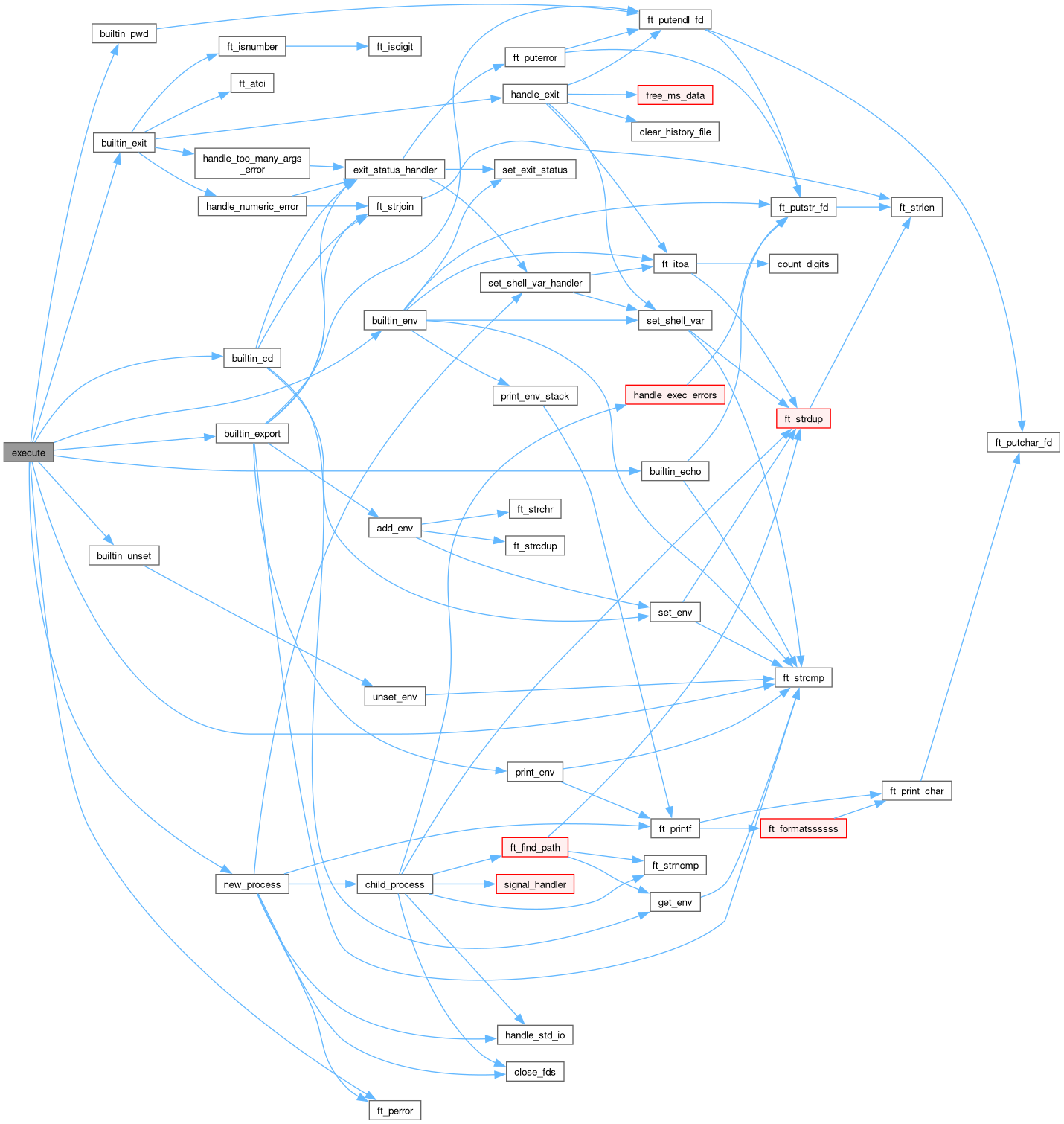
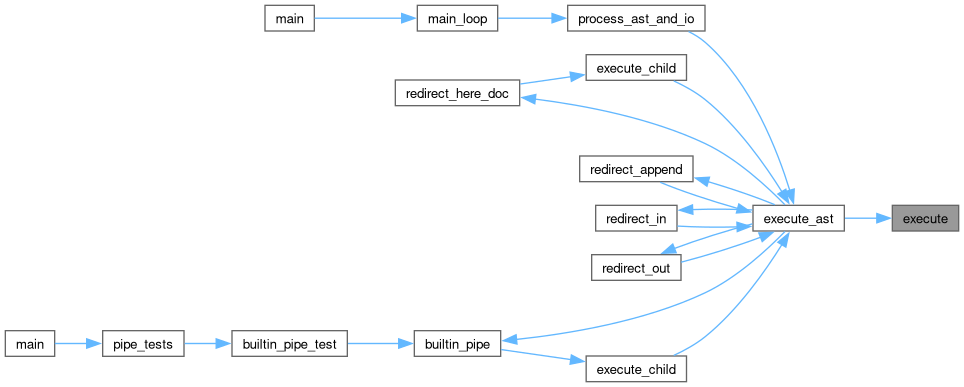
◆ execute_ast()
execute Abstract Syntax Tree
--
- Parameters
-
node Abstract Syntax Tree Node
- Parameters
-
data minishell data struct
- Returns
- int return status:
- - 0: success
- - 1: error
Definition at line 38 of file execute.c.
References s_ms_data::args, s_ast::args, builtin_pipe(), execute(), EXIT_FAILURE, EXIT_SUCCESS, PHRASE, PIPE, REDIR_APPEND, REDIR_HEREDOC, REDIR_IN, REDIR_OUT, redirect_append(), redirect_here_doc(), redirect_in(), redirect_out(), and s_ast::type.
Referenced by execute_child(), execute_child(), process_command(), redirect_append(), redirect_in(), and redirect_out().
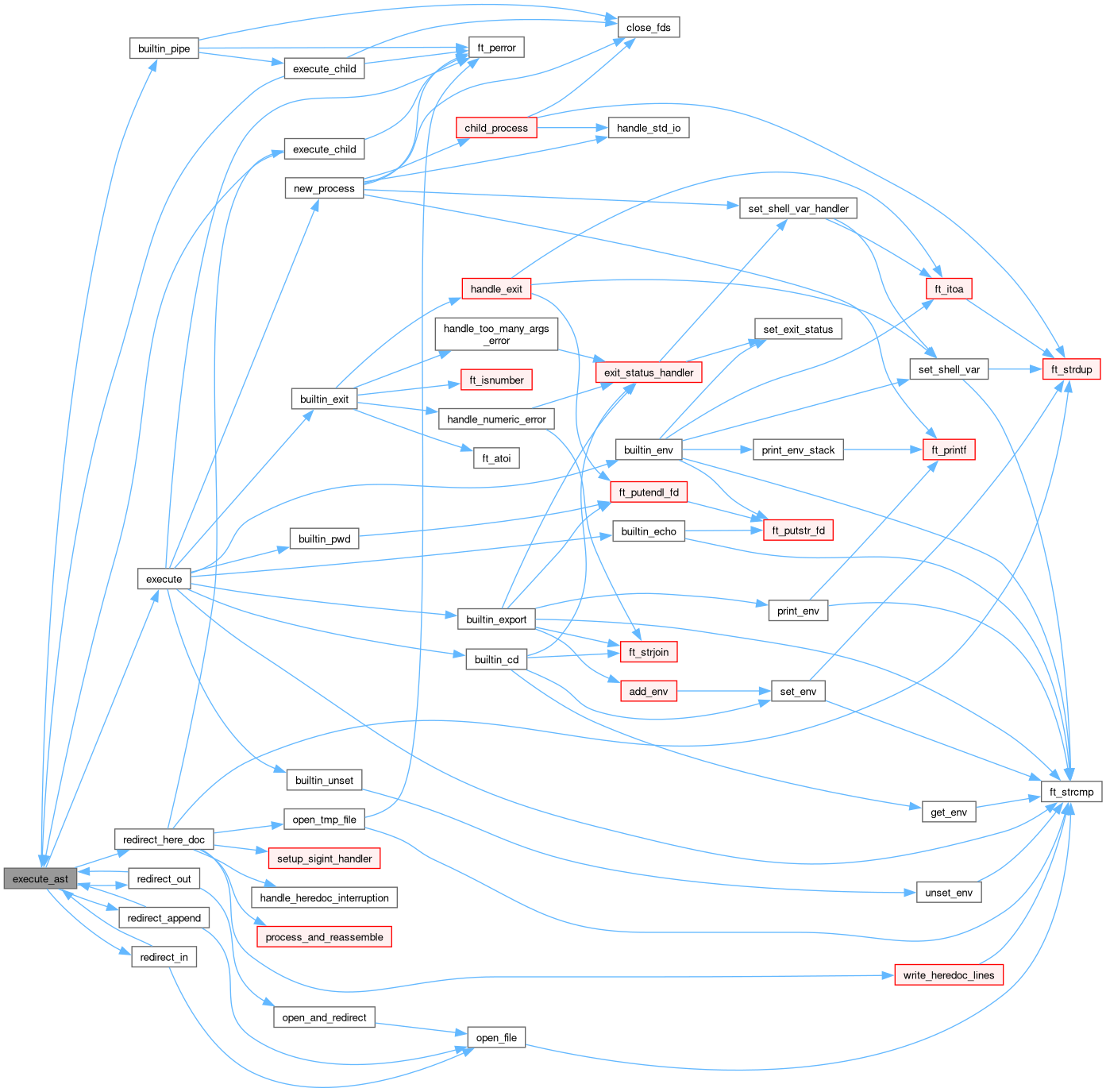
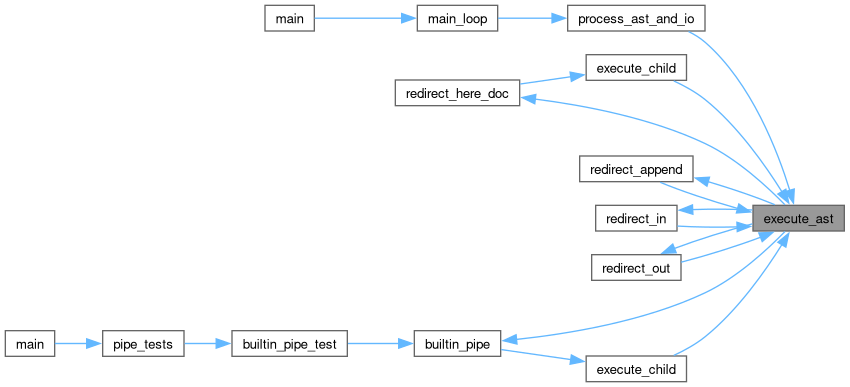
◆ ft_find_path()
| char * ft_find_path | ( | char * | cmd, |
| t_env * | envp | ||
| ) |
function find the full path of the executed command
--
- Parameters
-
cmd string from the first argument
- Parameters
-
envp structure with environment variables
- Returns
- char* returns the full path of the command TODO: rewrite ft_find_path for working full path when $PATH deleted
Definition at line 32 of file utils_1.c.
References ft_free_2d_arr(), ft_split(), ft_strdup(), ft_strncmp(), get_env(), and relative_path_handle().
Referenced by child_process().
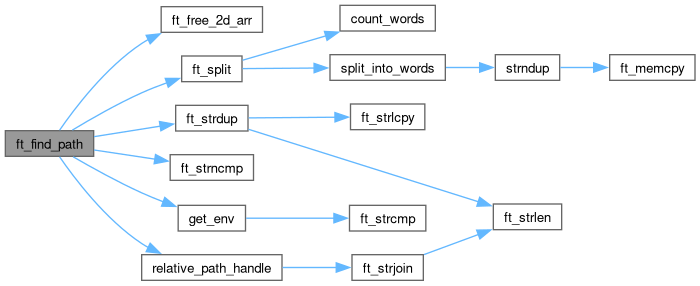

◆ ft_free_2d_arr()
| void ft_free_2d_arr | ( | char ** | arr | ) |
Definition at line 15 of file ft_free_2d_arr.c.
Referenced by builtin_exit(), ft_find_path(), process_and_reassemble(), and split_loc_vars().

◆ ft_perror()
| int ft_perror | ( | char * | str | ) |
Definition at line 18 of file exit_status_utils.c.
References EXIT_FAILURE.
Referenced by builtin_pipe(), execute_child(), execute_child(), new_process(), open_tmp_file(), and setup_pipe_processes().
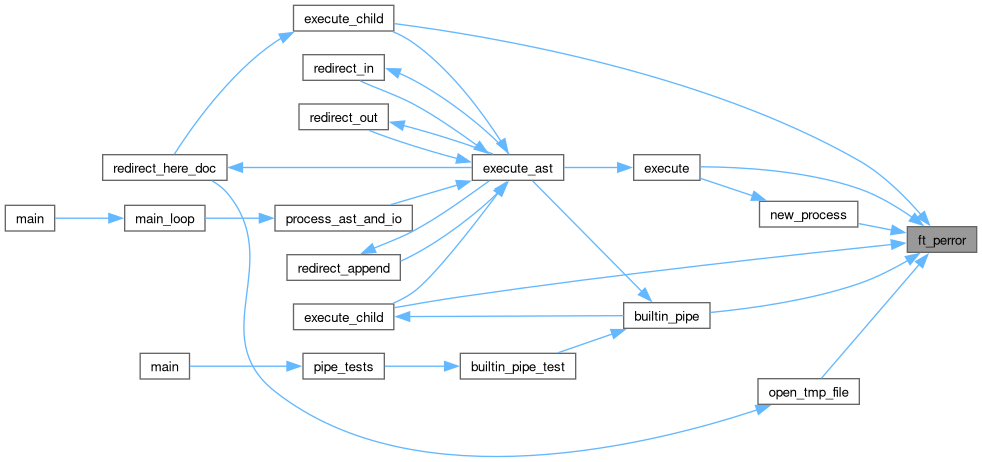
◆ handle_get_shell_variable()
| int handle_get_shell_variable | ( | t_ms_data * | data, |
| const char * | key | ||
| ) |
Definition at line 47 of file shell_variables.c.
References ft_putstr_fd(), get_env(), s_ms_data::shell_variables, and s_ms_data::std_out.
Referenced by handle_shell_variable().


◆ handle_io_fd()
| void handle_io_fd | ( | t_ms_data * | data | ) |
close temporary input/output file descriptors and reset them to -1
--
- Parameters
-
data minishell structure
Definition at line 39 of file utils_0.c.
References s_ms_data::std_in, and s_ms_data::std_out.
Referenced by process_command().

◆ handle_shell_variable()
Definition at line 64 of file shell_variables.c.
References s_ast::args, handle_get_shell_variable(), s_ast::left, and s_ast::right.

◆ handle_std_io()
| void handle_std_io | ( | int * | std_io, |
| int | std_fileno | ||
| ) |
Definition at line 50 of file utils_0.c.
Referenced by builtin_echo(), child_process(), and new_process().

◆ shell_variable_update()
| void shell_variable_update | ( | t_ms_data * | data, |
| int | status | ||
| ) |
Definition at line 71 of file shell_variables.c.
References s_ms_data::exit_status, ft_itoa(), set_shell_var(), and s_ms_data::shell_variables.
